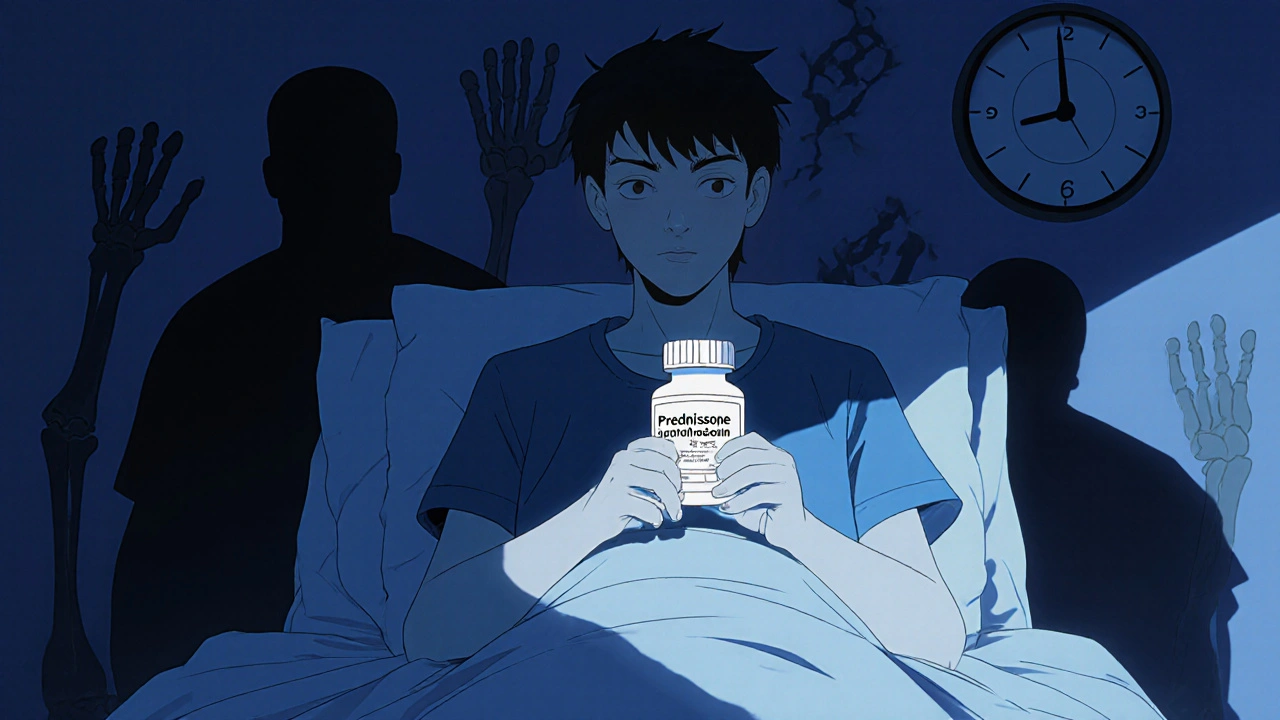Severe Asthma: Causes, Triggers, and How to Manage It
When you have severe asthma, a chronic respiratory condition where airways become inflamed and constricted, often requiring high-dose medication and frequent medical intervention. It's not the same as occasional wheezing or allergy-related coughing—this is persistent, unpredictable, and can land you in the ER without warning. People with severe asthma don't just feel out of breath—they struggle to speak in full sentences, wake up gasping at night, and often need rescue inhalers multiple times a day, even with treatment.
What makes severe asthma, a chronic respiratory condition where airways become inflamed and constricted, often requiring high-dose medication and frequent medical intervention. It's not the same as occasional wheezing or allergy-related coughing—this is persistent, unpredictable, and can land you in the ER without warning. so dangerous? It’s often triggered by things most people ignore: cold air, smoke, strong perfumes, even stress or sudden weather shifts. Unlike mild asthma, standard inhalers rarely cut it. Many need oral steroids, biologic injections, or even bronchial thermoplasty. And here’s the catch—many people don’t realize they have severe asthma until they’re in crisis. If you’re using your rescue inhaler more than twice a week, or waking up with chest tightness more than once a month, you’re not just "having a bad day." You might need a new plan.
asthma triggers, specific environmental or physiological factors that cause airway inflammation and narrowing in people with asthma. It's not the same as occasional wheezing or allergy-related coughing—this is persistent, unpredictable, and can land you in the ER without warning. are different for everyone. Dust mites? Pollen? Exercise? Even laughing too hard can set off an attack in some. Tracking your symptoms with a journal or app isn’t optional—it’s your early warning system. And asthma medication, a range of drugs used to prevent or relieve asthma symptoms, including inhalers, oral steroids, and biologics. It's not the same as occasional wheezing or allergy-related coughing—this is persistent, unpredictable, and can land you in the ER without warning. isn’t one-size-fits-all. Some need long-term control meds like corticosteroids. Others need biologics—targeted shots that block specific immune signals causing inflammation. If your current meds aren’t working, it’s not your fault. It just means it’s time to talk to your doctor about alternatives.
Managing severe asthma isn’t about avoiding life—it’s about reclaiming it. That means knowing your triggers, sticking to your treatment plan, and having an action plan ready when things go south. You’re not alone. Thousands live with this every day, and with the right tools, they stay active, healthy, and in control. Below, you’ll find real-world advice on how to spot red flags early, what medications actually help, how to reduce flare-ups, and what to do when standard treatments fail.

Oral Corticosteroid Burden in Severe Asthma: Proven Alternatives That Work
Oral corticosteroids help control severe asthma flare-ups but cause serious long-term side effects. Biologics now offer a safer, more effective alternative that reduces steroid dependence, hospitalizations, and health costs.
